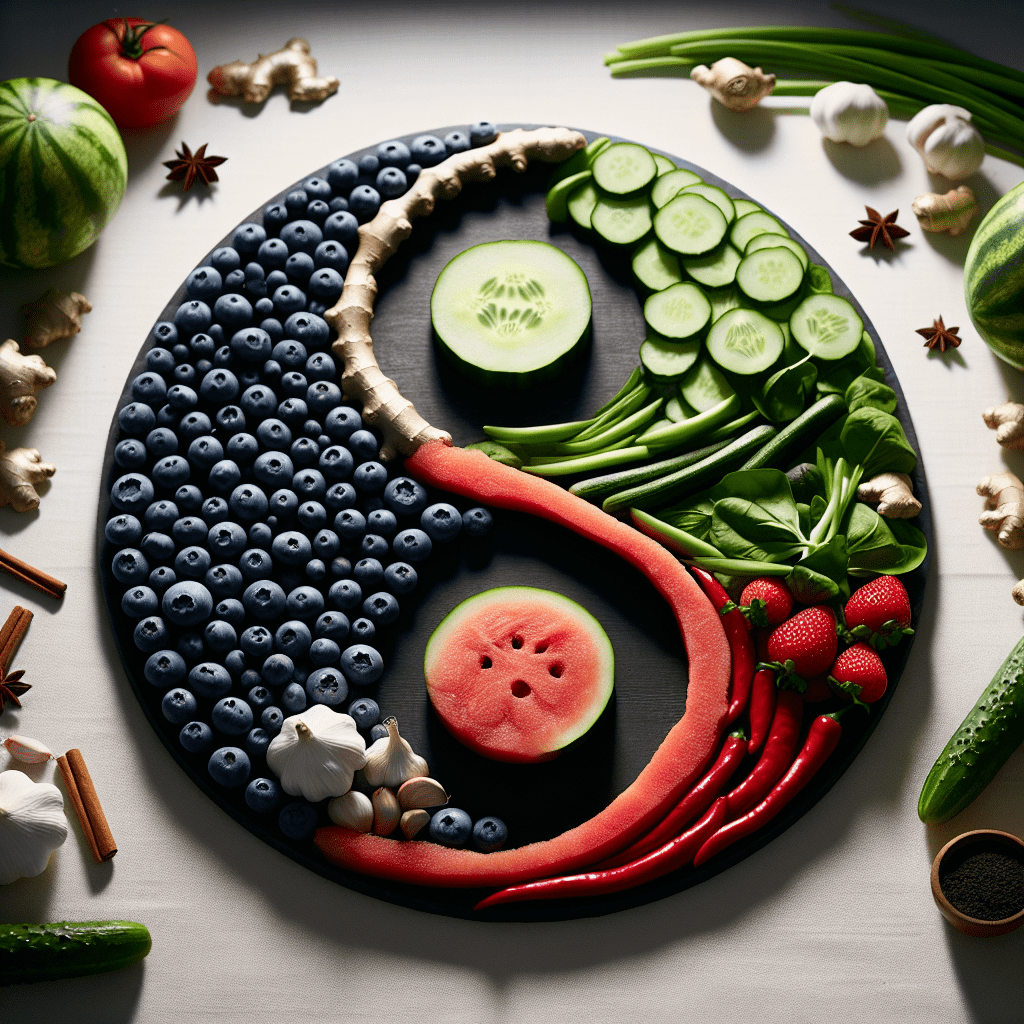In a world where medical technology advances daily, an ancient healing tradition continues to offer profound wisdom for those facing cancer. Traditional Chinese Medicine (TCM), with its 2,000-year-old approach to health, is increasingly finding its place alongside modern cancer treatments—not as a replacement, but as a complementary path that honors the whole person: body, mind, and spirit.
This integration is more than just a trend. It’s a recognition that healing cancer requires addressing the entire person, not just targeting tumor cells. As one holistic cancer nutritionist might tell you, “We’re not just treating the disease; we’re nurturing the person who has it.”
The Eastern approach to cancer care embodies a philosophy that resonates deeply with health-conscious individuals seeking comprehensive support during their cancer journey. By blending time-tested wisdom with contemporary care, patients are discovering a more balanced approach to wellness that honors both ancient traditions and modern science.
The Timeless Wisdom of Eastern Medicine
At its core, Traditional Chinese Medicine views health as a state of harmony and balance. Unlike Western medicine’s focus on eliminating disease, TCM seeks to restore equilibrium within the body’s systems. This perspective sees cancer not simply as cells gone rogue, but as a manifestation of deeper imbalances that need addressing.
The foundational concept of Yin and Yang—complementary opposites that create wholeness—shapes every aspect of TCM’s approach to cancer care. When these forces fall out of balance, disease can take root. A holistic cancer nutritionist trained in Eastern principles works to identify these imbalances and restore harmony through various healing modalities.
What’s particularly striking about Eastern medicine is its emphasis on individuality. There is no one-size-fits-all protocol. Instead, practitioners assess each person’s unique constitution, symptoms, and life circumstances to create truly personalized healing plans. This individualized approach is gaining recognition in cancer centers worldwide, where patients increasingly seek care that acknowledges their unique needs and experiences.
Key Principles of Traditional Chinese Medicine
The balance of Yin and Yang lies at the heart of TCM philosophy. Yin represents cooling, calming, and moistening qualities, while Yang embodies warming, activating, and drying attributes. In health, these forces exist in dynamic balance; in disease states like cancer, this harmony is disrupted.
A holistic cancer nutritionist working with TCM principles might explain that chemotherapy, with its depleting effects, creates a Yin deficiency that needs nourishing. Or they might identify excessive Yang manifestations like inflammation that require cooling, calming interventions.
Beyond Yin and Yang, TCM emphasizes environmental harmony—the relationship between humans and the natural world. Seasonal eating, for example, aligns the body with nature’s rhythms. Winter calls for warming, nourishing foods like slow-cooked soups, while summer favors cooling, hydrating options like cucumber and watermelon.
These principles are applied through various healing modalities:
- Acupuncture to restore energy flow
- Herbal medicine to address specific imbalances
- Dietary therapy that treats food as medicine
- Mind-body practices like qigong and tai chi
- Therapeutic massage to stimulate circulation
Each approach is tailored to the individual’s unique needs, creating a healing program as distinctive as the person themselves.
Integrating Eastern Wisdom into Cancer Care
The integration of Eastern and Western approaches creates a powerful synergy in cancer care. While conventional treatments target the disease directly, Eastern practices support the person’s overall resilience and quality of life. This comprehensive approach addresses not just physical symptoms but emotional, psychological, and spiritual wellbeing.
“When we integrate Eastern wisdom into cancer care, we’re providing patients with additional tools for healing,” explains one holistic cancer nutritionist. “It’s about expanding options, not limiting them.”
This integration might look like:
- Acupuncture to reduce chemotherapy-induced nausea
- Dietary therapy to maintain strength during treatment
- Herbal formulations to support immune function
- Mind-body practices to reduce stress and anxiety
- Nutritional strategies to minimize treatment side effects
Research increasingly supports this integrated approach. A comprehensive review published in the Journal of Cancer Research and Clinical Oncology found that TCM not only potentially increases the efficacy of conventional cancer treatments but also significantly mitigates their toxic side effects. This dual benefit makes Eastern medicine an invaluable complement to standard cancer care.
Food as Medicine: The Nutritional Wisdom of TCM
Perhaps nowhere is the Eastern approach more practical and accessible than in its nutritional philosophy. In TCM, food is never viewed simply as calories or nutrients—it’s medicine in its most fundamental form.
“Let food be thy medicine” isn’t just an ancient quote; it’s a living principle in Eastern dietary therapy. A holistic cancer nutritionist trained in Eastern medicine evaluates foods based on their energetic properties, not just their nutrient content. Every food has qualities that can warm or cool, stimulate or sedate, dry or moisten—effects that can be strategically employed to balance the body’s needs.
Foods are classified according to:
- Temperature (warming, cooling, neutral)
- Flavor (sweet, sour, bitter, pungent, salty)
- Direction of energy (ascending, descending, floating, sinking)
- Specific organ affinities
For someone undergoing cancer treatment, these distinctions matter. A person experiencing “cold” symptoms like fatigue and chilliness might benefit from warming ginger tea, while someone with “heat” manifestations like mouth sores or constipation might need cooling cucumber or pear.
The TCM approach also recognizes that digestion requires energy—energy that cancer patients can’t afford to waste. Accordingly, many recommendations focus on easily digestible foods that nourish without depleting vital energy reserves.
Practical TCM Dietary Approaches for Cancer Support
A holistic cancer nutritionist drawing from Eastern wisdom typically emphasizes several key dietary principles:
Whole, minimally processed foods form the foundation. The less processed a food, the more life energy or “qi” it contains. Fresh vegetables, fruits, whole grains, and high-quality proteins provide the building blocks for healing.
Seasonal eating aligns the body with nature’s rhythms. Winter calls for warming stews and roasted root vegetables, while summer favors cooling salads and fresh fruits. This seasonal approach ensures variety while supporting the body’s changing needs throughout the year.
Balancing flavors supports organ system function. TCM associates five flavors with specific organs: sour (liver), bitter (heart), sweet (spleen), pungent (lungs), and salty (kidneys). Including all five flavors ensures comprehensive nourishment for the body’s systems.
Easy-to-digest preparations spare valuable energy. Soups, broths, congees (rice porridges), and stews require less digestive effort while maximizing nutrient absorption. A simple bone broth with medicinal mushrooms and ginger provides nourishment without taxing digestion.
Specific foods address particular imbalances. For instance:
- Blood-building foods like dark leafy greens, beets, and black beans for anemia
- Moistening foods like pears, honey, and seaweed for dry mouth or constipation
- Warming foods like ginger, cinnamon, and lamb for fatigue and coldness
A typical recommendation might be a morning congee (rice porridge) with goji berries and walnuts to nourish blood and energy, a lunch of steamed vegetables with a small portion of protein, and a dinner of healing soup with medicinal mushrooms. Simple teas brewed from ginger, chrysanthemum, or astragalus might be suggested between meals for their specific therapeutic benefits.
The Science Behind Eastern Medicine in Cancer Care
While Eastern medicine is rooted in ancient wisdom, modern research increasingly validates many of its approaches. Studies show that integrating TCM with conventional cancer treatments can enhance immune function, reduce treatment side effects, and improve quality of life. Research from the National Institutes of Health continues to explore these promising integrative approaches.
Research published in the journal Cancer found that acupuncture significantly reduced chemotherapy-induced nausea and vomiting compared to standard anti-nausea medications alone. Other studies have shown that certain Chinese herbs can reduce radiation-induced inflammation and protect healthy cells while sensitizing cancer cells to treatment.
The nutritional approaches of TCM also find support in contemporary research. Many traditional medicinal foods like mushrooms (reishi, shiitake, maitake), seaweeds, and bitter melon have demonstrated anti-cancer properties in laboratory studies. The emphasis on whole, unprocessed foods aligns perfectly with current nutritional science showing the benefits of plant-focused, minimally processed diets for cancer prevention and survivorship.
What makes the holistic cancer nutritionist’s approach particularly valuable is its personalization. Rather than generic recommendations, the Eastern approach tailors dietary plans to the individual’s specific constitution, symptoms, and treatment regimen. This personalized nutrition strategy addresses the unique challenges each person faces in their cancer journey.
Embracing Eastern Wisdom for Modern Healing
The integration of Eastern medicine into cancer care represents a profound shift toward more holistic, patient-centered approaches. By honoring the wisdom of ancient healing traditions while embracing modern medical advances, we create a more comprehensive framework for supporting those facing cancer.
The holistic cancer nutritionist trained in Eastern principles serves as a bridge between these worlds, translating ancient wisdom into practical, evidence-informed recommendations that complement conventional care. This integration doesn’t ask patients to choose between approaches but invites them to benefit from the best of both.
For those navigating the challenging terrain of cancer, Eastern medicine offers additional tools for the journey—tools that address not just physical symptoms but emotional and spiritual wellbeing. The emphasis on food as medicine, personalized care, and restoring balance provides a framework for healing that honors the whole person.
As we continue to explore the integration of ancient wisdom with modern medicine, we discover not competing approaches but complementary paths to healing. The secrets of the holistic cancer nutritionist aren’t really secrets at all, but timeless principles of balance, harmony, and personalized care that have supported human health for millennia—principles that remain profoundly relevant in our modern quest for healing.
In the words of a Chinese proverb that captures the essence of this approach: “He that takes medicine and neglects diet wastes the skill of the physician.” By embracing the nutritional wisdom of Eastern medicine, we honor both the sophisticated treatments of modern oncology and the profound healing potential of nature’s pharmacy.


